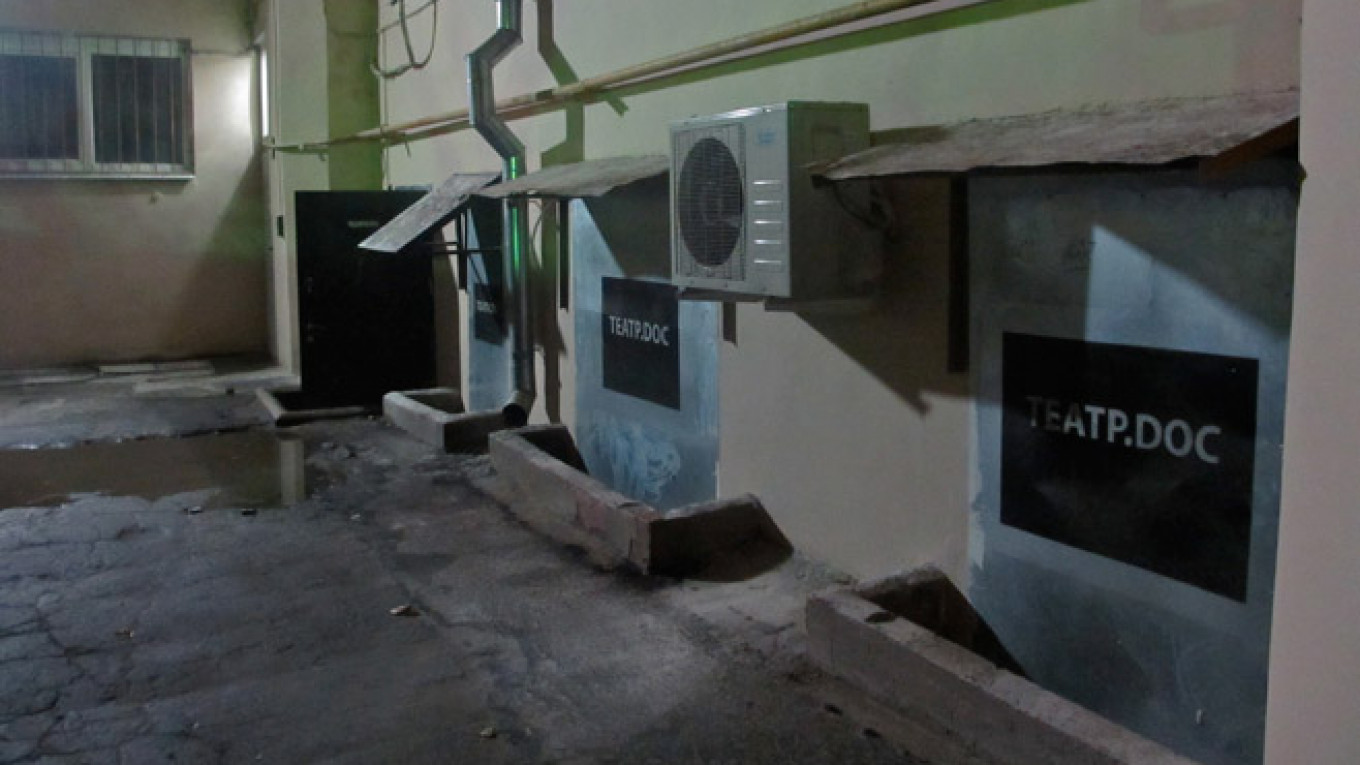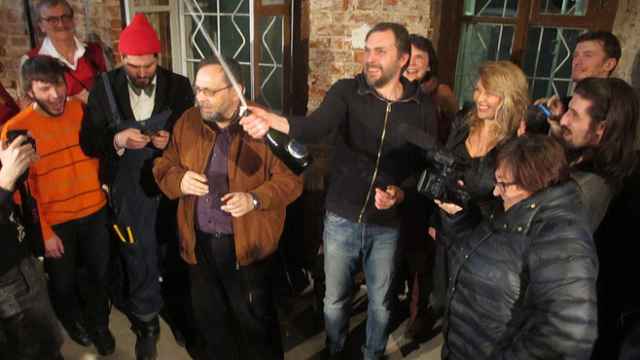Peering at the audience from behind mesh hammocks as if through prison bars, actors at an independent Moscow theater tell the story of a dozen people still in jail three years after a protest against President Vladimir Putin.
The first night of the play, written to remember those arrested on the eve of Putin's third presidential inauguration in May 2012, was almost its last, as state prosecutors came the next day and, shortly afterwards, the landlord told the company he wanted them out, citing pressure from the state.
Teatr.doc head, Yelena Gremina, who directed the play, said her company was almost getting used to it, having being evicted from another venue late last year, part of what Putin's critics denounce as a Kremlin crackdown on dissent.
The play will be staged once more before moving to a new venue later this month.
The play, "The Bolotnaya Case," is named after Moscow's Bolotnaya Square, where tens of thousands protested against Putin peacefully until the rally turned violent and the police arrested several hundred people.
The protesters were convicted of rioting, with sentences ranging from restrictions on freedom of movement to jail time and forcible psychiatric treatment.
"We want to remember those innocent people in jail," Gremina told Reuters, saying she feared the 14 people still in detention had been forgotten, their cases drowned out by events in Ukraine over which Putin has whipped up nationalistic fervor.
"The reaction from the authorities means we have succeeded in some way," she said.
In the play, a mother of one of the prisoners describes how she came to love spending days in bleak Russian courtrooms as she got to see her son and how she persuaded herself that in jail he was at least safe from road accidents.
A girl describes her struggle against bureaucracy to marry her boyfriend in prison despite never wanting to get married before.
One of the characters says: "Anyone, anyone might have been in our shoes. Because this system produces (rebels)."
Gremina said she was driven to direct the play through a sense of guilt.
"It was a trauma for me ... I felt like this case is being all but forgotten ... Innocent people are locked away but with the news focusing on the war with Ukraine this has lost its prominence," Gremina said.
Gremina is determined to go on and Teatr.doc is now asking volunteers to help it renovate and adapt the new site. The theatre receives no state subsidies and lives on private donations and grants, with actors paid from ticket sales.
"We ran into some trouble but at least we risked something for justice," she said.
Throughout the play, the actors take turns unwrapping a pile of candies and placing them in a plastic bag on a little table in the middle of the stage. It is a reminder of the ritual faced by inmates' relatives who are only allowed to pass on food parcels at the jail if the products are unwrapped.
Before the curtain goes down, the audience is drawn into repeating the refrain of a 19th-century song of Russian convicts: "Break the chains, set me free, I will teach you to love freedom," as a pile of unwrapped candies lies on the table.
A Message from The Moscow Times:
Dear readers,
We are facing unprecedented challenges. Russia's Prosecutor General's Office has designated The Moscow Times as an "undesirable" organization, criminalizing our work and putting our staff at risk of prosecution. This follows our earlier unjust labeling as a "foreign agent."
These actions are direct attempts to silence independent journalism in Russia. The authorities claim our work "discredits the decisions of the Russian leadership." We see things differently: we strive to provide accurate, unbiased reporting on Russia.
We, the journalists of The Moscow Times, refuse to be silenced. But to continue our work, we need your help.
Your support, no matter how small, makes a world of difference. If you can, please support us monthly starting from just $2. It's quick to set up, and every contribution makes a significant impact.
By supporting The Moscow Times, you're defending open, independent journalism in the face of repression. Thank you for standing with us.
Remind me later.






